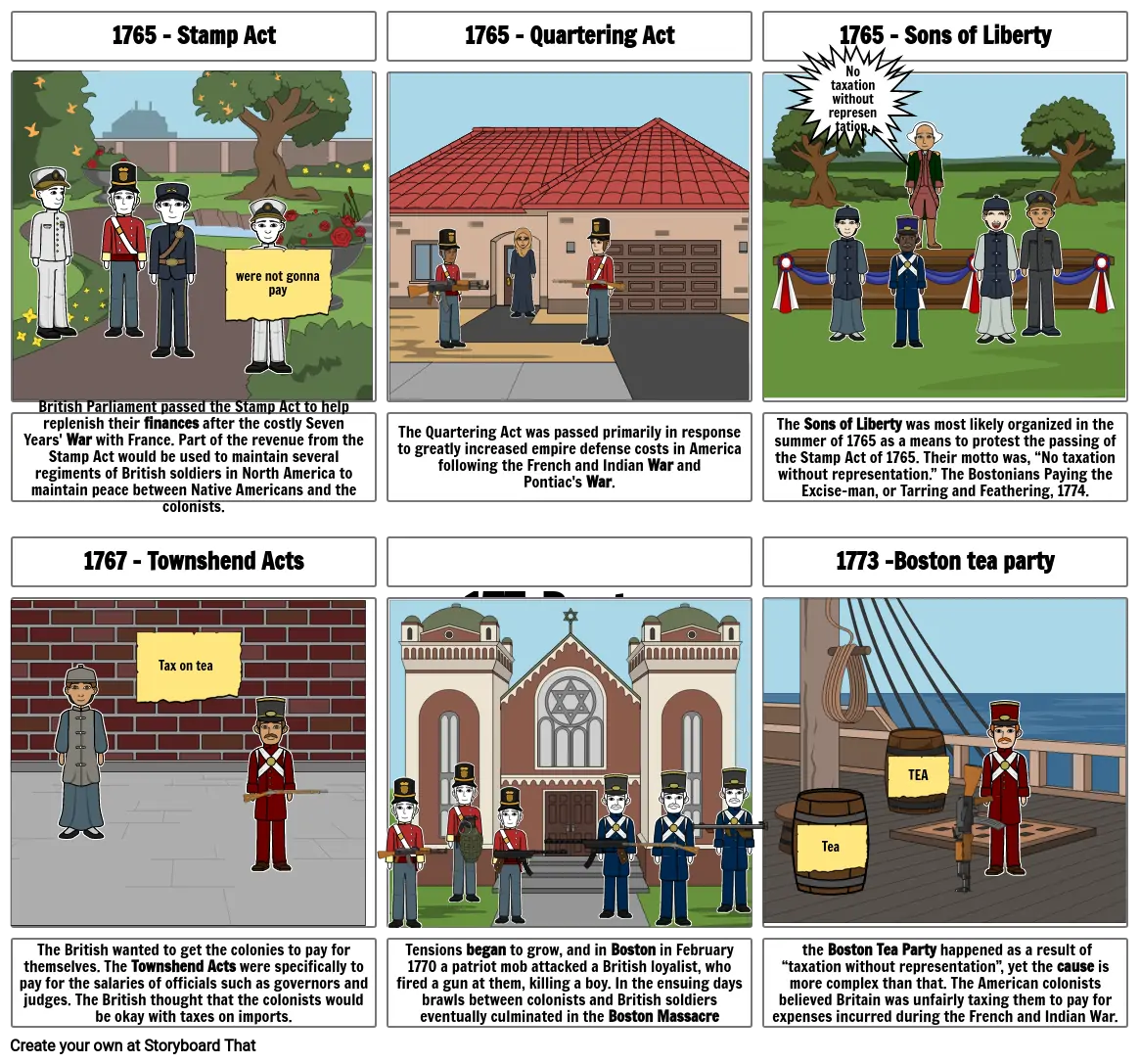Unknown Story

Storyboard Description
wilson work
Storyboard Text
- 1765 - Stamp Act
- were not gonna pay
- 1765 - Quartering Act
- 1765 - Sons of Liberty
- No taxation without representation.
- British Parliament passed the Stamp Act to help replenish their finances after the costly Seven Years' War with France. Part of the revenue from the Stamp Act would be used to maintain several regiments of British soldiers in North America to maintain peace between Native Americans and the colonists.
- 1767 - Townshend Acts
- Tax on tea
- The Quartering Act was passed primarily in response to greatly increased empire defense costs in America following the French and Indian War and Pontiac's War.
- 177-Boston Massacre
- The Sons of Liberty was most likely organized in the summer of 1765 as a means to protest the passing of the Stamp Act of 1765. Their motto was, “No taxation without representation.” The Bostonians Paying the Excise-man, or Tarring and Feathering, 1774.
- 1773 -Boston tea party
- The British wanted to get the colonies to pay for themselves. The Townshend Acts were specifically to pay for the salaries of officials such as governors and judges. The British thought that the colonists would be okay with taxes on imports.
- Tensions began to grow, and in Boston in February 1770 a patriot mob attacked a British loyalist, who fired a gun at them, killing a boy. In the ensuing days brawls between colonists and British soldiers eventually culminated in the Boston Massacre
- the Boston Tea Party happened as a result of “taxation without representation”, yet the cause is more complex than that. The American colonists believed Britain was unfairly taxing them to pay for expenses incurred during the French and Indian War.
- Tea
- TEA
Over 30 Million Storyboards Created
No Downloads, No Credit Card, and No Login Needed to Try!
